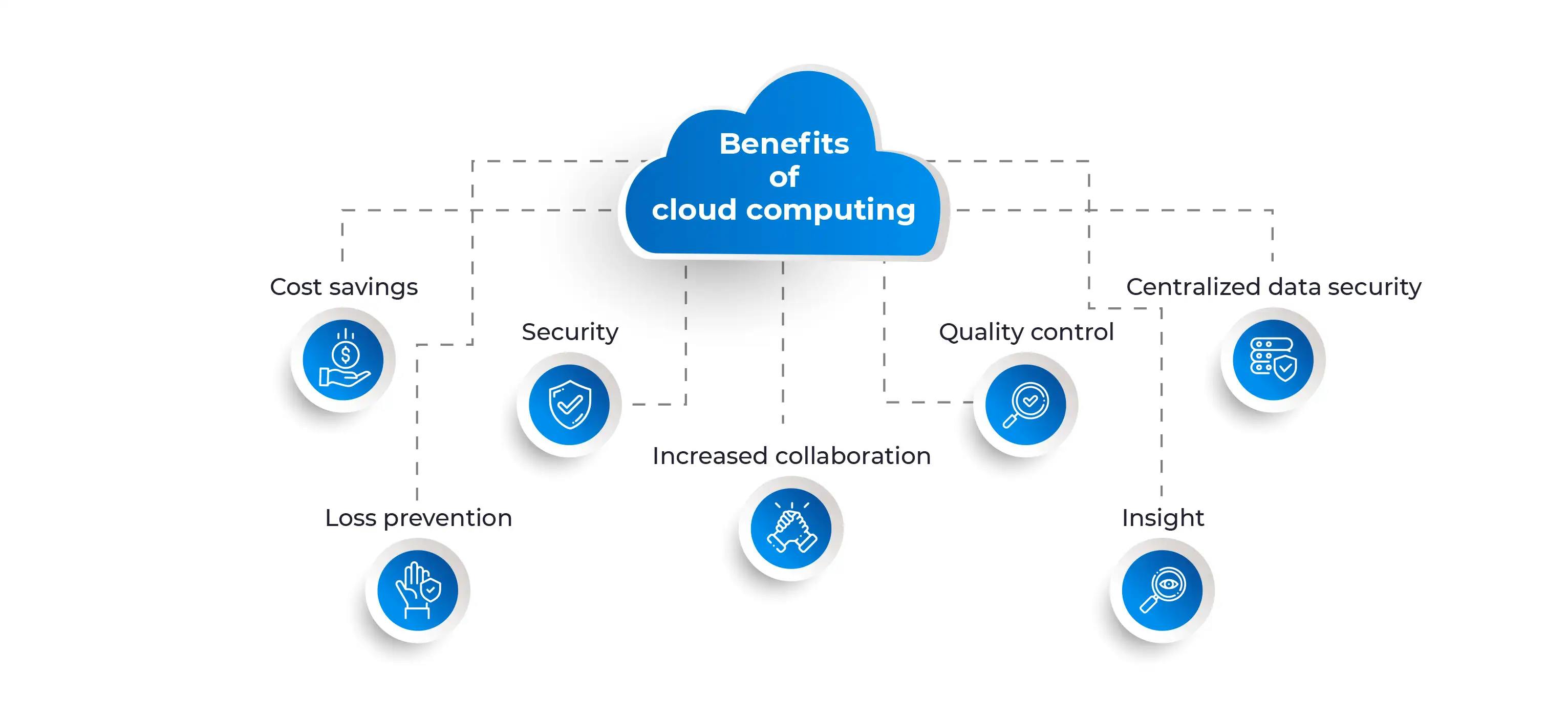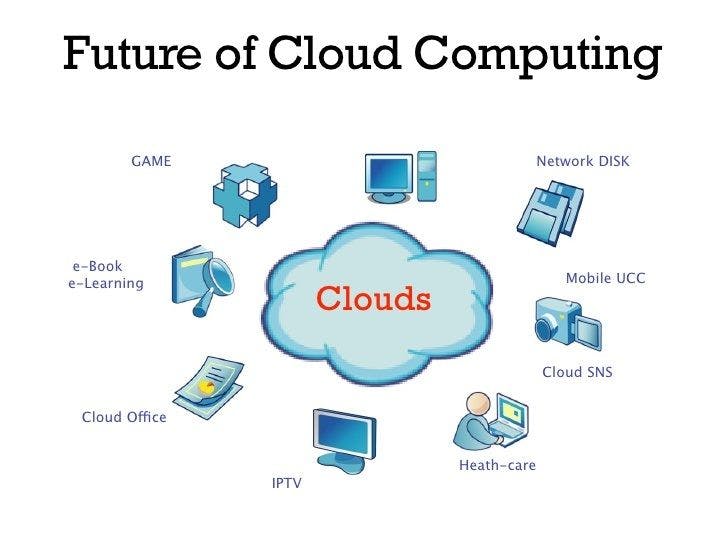Introduction: The Benefits of Cloud Computing for Businesses in the Digital Age
In today's fast-paced digital world, cloud computing has become an integral part of our lives. From storing data to running applications, cloud computing has revolutionized the way we do business, communicate, and interact with technology. In this blog, we will take a closer look at what cloud computing is, its benefits, and why it is the future of technology.

What is Cloud Computing?
Cloud computing has revolutionized the way businesses approach their IT infrastructure, providing them with access to technology resources on-demand, without the need for expensive hardware or software installations. By eliminating the need for on-premises infrastructure or hardware, cloud computing has not only reduced the costs associated with traditional IT infrastructure but also provided businesses with greater flexibility and agility. Cloud computing allows businesses to scale their IT resources up or down as per their requirements, without the need for large capital investments or complex IT management.
Furthermore, cloud providers invest heavily in security measures to protect their customers' data, making cloud computing a more secure option than traditional on-premises IT infrastructure. Cloud computing provides businesses with the ability to access cutting-edge technologies like artificial intelligence, machine learning, and big data analytics without the need for expensive hardware or software. This enables businesses to leverage these technologies to gain insights, automate processes, and improve decision-making.
Additionally, cloud computing allows for easy collaboration and remote work, as cloud-based applications and tools enable team members to access and share data and work together in real-time, no matter where they are located. Moreover, cloud computing is also environmentally sustainable, as it allows businesses to reduce their energy consumption, carbon footprint, and waste by utilizing shared resources in the cloud.
Overall, cloud computing is a critical component of businesses' IT strategies, providing them with numerous benefits, including cost savings, flexibility, scalability, security, access to cutting-edge technologies, collaboration, and environmental sustainability.

Benefits of Cloud Computing
The first benefit of cloud computing is cost savings. By using the cloud, businesses can avoid the need for upfront capital investments in IT infrastructure, such as hardware, software, and maintenance costs. With cloud computing, businesses only pay for the services they use, which can help them to save money on technology costs. This allows businesses to focus on their core competencies and allocate resources towards growth and innovation.
Secondly, cloud computing provides businesses with the flexibility and agility they need to adapt to changing business needs. Cloud providers offer a variety of services that can be scaled up or down as per the needs of the business. This means that businesses can quickly adjust their IT resources to accommodate changes in demand or business growth. This provides businesses with greater flexibility and agility, enabling them to respond quickly to market changes.
Thirdly, cloud computing can improve security. Cloud providers invest heavily in security measures to protect their customers' data. This includes measures such as encryption, firewalls, and access control. Cloud providers also monitor their systems 24/7, providing businesses with an added layer of security. This makes cloud computing a more secure option than traditional on-premises IT infrastructure.

Why Cloud Computing is the Future
Cloud computing is the future of technology because it provides businesses with the flexibility and agility they need to stay competitive in a rapidly changing market. As businesses continue to digitize their operations, the need for scalable, secure, and cost-effective IT infrastructure will become even more critical. Cloud computing allows businesses to access and use technology on-demand, without the need for expensive capital investments. This allows businesses to be more agile and responsive to market changes, helping them to stay ahead of the competition.
Moreover, cloud computing provides businesses with access to cutting-edge technologies like artificial intelligence, machine learning, and the internet of things. These technologies can help businesses to gain insights, automate processes, and drive innovation. By using the cloud, businesses can leverage these technologies without the need for expensive hardware or software. This makes it easier for businesses of all sizes to compete with larger, more established companies.

Conclusion
Cloud computing offers numerous benefits for businesses, including cost savings, flexibility, agility, and improved security. As businesses continue to digitize and adopt new technologies, cloud computing will become even more critical to their success. By leveraging the power of the cloud, businesses can stay competitive, improve their operations, and drive innovation. If you haven't already, it's time to start thinking about how cloud computing can benefit your business.
